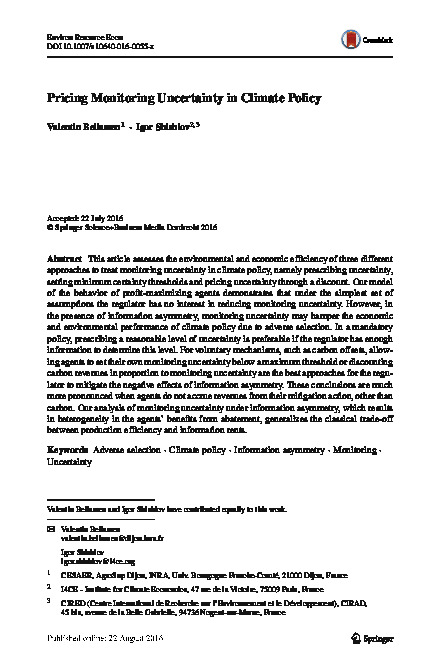Pricing Monitoring Uncertainty in Climate Policy
This article assesses the environmental and economic efficiency of three different approaches to treat monitoring uncertainty in climate policy, namely prescribing uncertainty, setting minimum certainty thresholds and pricing uncertainty through a discount. Our model of the behavior of profit-maximizing agents demonstrates that under the simplest set of assumptions the regulator has no interest in reducing monitoring uncertainty. However, in the presence of information asymmetry, monitoring uncertainty may hamper the economic and environmental performance of climate policy due to adverse selection. In a mandatory policy, prescribing a reasonable level of uncertainty is preferable if the regulator has enough information to determine this level. For voluntary mechanisms, such as carbon offsets, allowing agents to set their own monitoring uncertainty below a maximum threshold or discounting carbon revenues in proportion to monitoring uncertainty are the best approaches for the regulator to mitigate the negative effects of information asymmetry. These conclusions are much more pronounced when agents do not accrue revenues from their mitigation action, other than carbon. Our analysis of monitoring uncertainty under information asymmetry, which results in heterogeneity in the agents’ benefits from abatement, generalizes the classical trade-off between production efficiency and information rents.
You can download the article HERE
